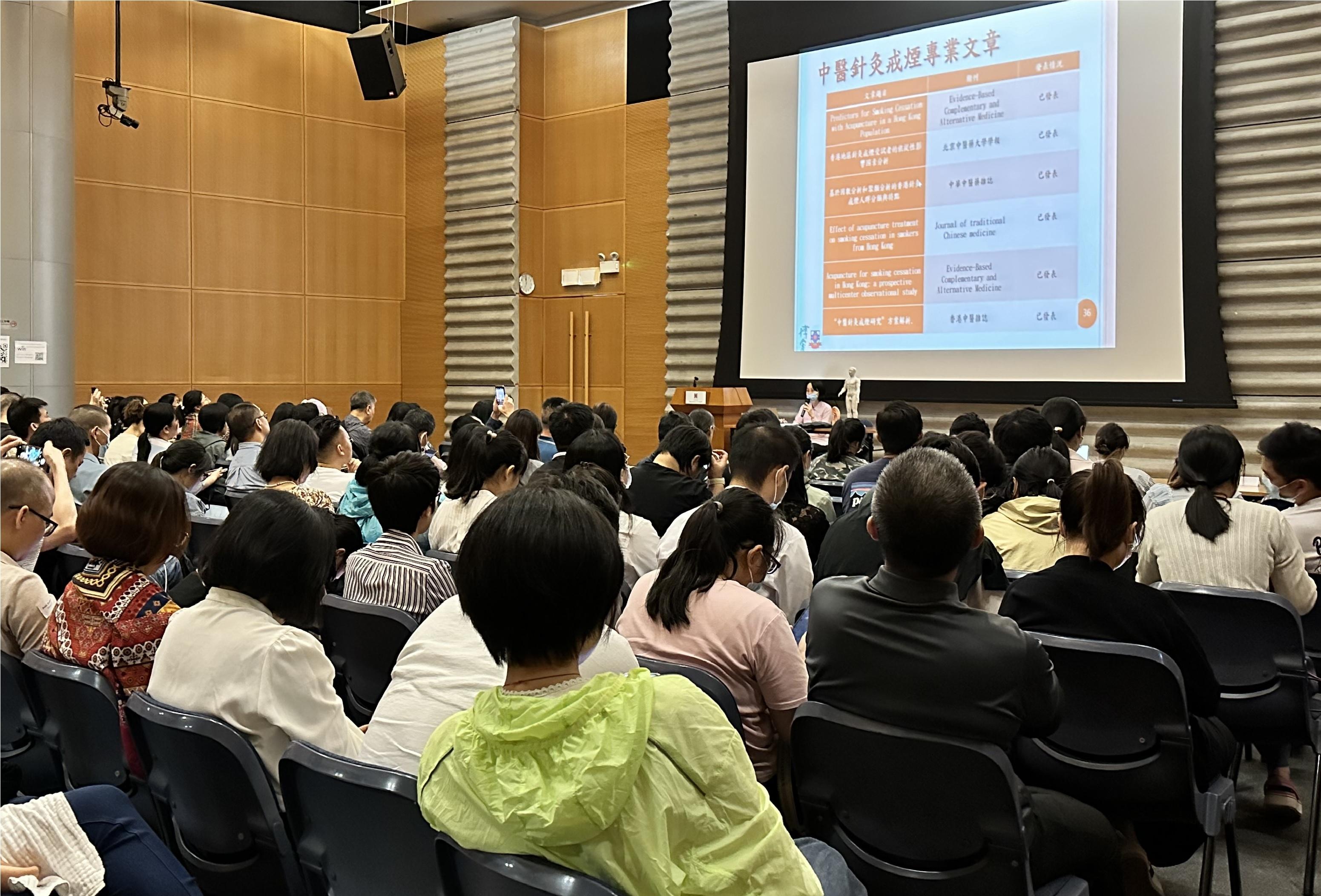DH holds Training Workshop on Chinese Medicine Acupuncture Smoking Cessation Service 2024 (with photo)
The Tobacco and Alcohol Control Office (TACO) of the Department of Health (DH) today (July 19) organised the Training Workshop on Chinese Medicine Acupuncture Smoking Cessation Service 2024, which provides training on acupuncture to 138 frontline Chinese medicine (CM) practitioners to enhance their skills in providing CM acupuncture smoking cessation services.
To strengthen knowledge exchange on tobacco control and share local experiences in cessation service provision with Mainland and Macao healthcare professionals, TACO extended invitations to CM practitioners from the Mainland and Macao to participate in this year's workshop. The training content spanned smoking cessation counseling, the mechanism and treatment plans of CM smoking cessation, as well as practical demonstrations of acupuncture and ear point treatment techniques, further equipping frontline CM practitioners with the necessary knowledge and skills in delivering cessation treatments. Of the participants, 114 frontline CM practitioners were from the Mainland and Macao. Among them, 98 were recommended by the Traditional Chinese Medicine Bureau of Guangdong Province and the Administration of Traditional Chinese Medicine of Guangxi Zhuang Autonomous Region.
Research shows that acupuncture combined with ear point treatment and professional counselling can effectively alleviate withdrawal symptoms and the short-term discomforts that may appear when smokers start to quit smoking, thus increasing the success rate of quitting smoking. According to the experience of DH-subvented CM acupuncture smoking cessation service operated by Pok Oi Hospital, a quit rate of over 20 per cent (i.e. the percentage of service users who self-reported to have stayed quit in the past seven days) at 52 weeks after the quit date was attained, comparable to that of the cessation services using nicotine replacement therapy.
The DH has also introduced Chinese medicine ear point patches to help with quitting smoking, which is a new initiative under the Quit in June campaign this year. The application of cowherb seeds on the surface of the ears to stimulate ear points will lessen the discomfort related to nicotine withdrawal, especially during the early stage of quitting. People who wish to quit smoking can receive Chinese medicine ear point patches for free at more than 40 Chinese medicine clinics across the territory. They can also enrol in free Chinese medicine and acupuncture smoking cessation services anytime, or after they have tried the Chinese medicine ear point patches for two weeks. Members of the public can call 1833 183 or visit the smoking cessation thematic website (www.livetobaccofree.hk) for more information on quitting and the available support tools and services.
The DH has become a regional hub for supporting training in smoking cessation treatment and services, after it was designated by the World Health Organization to establish the Collaborating Centre for Smoking Cessation and Treatment of Tobacco Dependence in April 2012. In addition to the Annual Training Programme on Tobacco Control for tobacco control workers in the Western Pacific region, TACO also regularly holds smoking cessation treatment training courses to enhance the capability of local healthcare professionals in providing smoking cessation support.
The DH will further strengthen collaboration and communication with the Mainland in tobacco control, and it is committed to providing continued support in cessation training and assistance, as well as jointly promoting the construction of a smoke-free Greater Bay Area.
